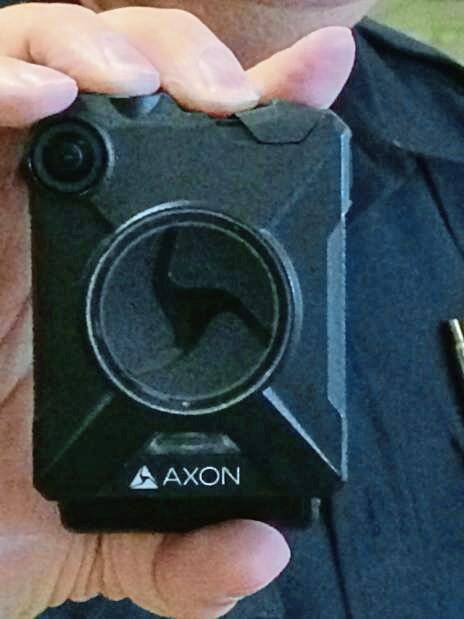https://triblive.com/news/pennsylvania/pa-state-system-schools-look-to-outfit-police-with-body-cameras/
Pa. state system schools look to outfit police with body cameras

Slippery Rock University is seeking grants to begin outfitting its 11 police officers and five patrol cars with body and vehicle cameras that can record interactions with students, employees and the general public.
The school with 8,200 students isn’t the only state-owned university poised to take that step.
Campuses across the System of Higher Education can now legally equip their police personnel with cameras and leave those devices in continuous use under a new state law, Act 121, that modifies the process by which those officers are certified.
The law now makes it permissible under Pennsylvania wiretap law for those officers to record audio in the course of their duties not only while in public but when entering private spaces such as dorms. It’s a practice present elsewhere in law enforcement, but one that until now could not be utilized by the State System, officials said.
There are nearly 85,000 students and about 11,000 employees at the 10 system universities, which in Western Pennsylvania also include PennWest (California-Clarion-Edinboro) and Indiana University of Pennsylvania in addition to Slippery Rock.
The others are Commonwealth (Bloomsburg-Lock Haven-Mansfield), Cheyney, East Stroudsburg, Kutztown, Millersville, Shippensburg and West Chester universities.
Bloomsburg and Lock Haven already have body cams, but to comply with wiretap law, their officers have had to ask permission first or stop recording when entering private spaces, system spokesman Kevin Hensil said Thursday.
“Bloom and LHU will likely continue asking for permission to record in dorms,” he explained. “It’s working well so they anticipate continuing that process.”
Policies set by other campuses may vary. Officials on some campuses say they are evaluating the idea.
“Further discussions will be necessary to determine next steps following this recent legislation,” PennWest spokeswoman Wendy Mackall said.
“As this legislation is very new, we have not had the opportunity to explore this issue,” IUP spokeswoman Michelle Fryling said.
Cameras and policies governing their use are part of a widening discussion of police reforms and how best to maintain trust between officers and communities they serve.
They can be a positive addition because recordings can be used in court as objective evidence from an incident, said Adam Steinbaugh, an attorney with the Philadelphia-based Foundation for Individual Rights and Expression.
It also can support a defendant when an officer’s memory is incorrect or if that officer acts inappropriately.
Otherwise, Steinbaugh said, “Nine times out of ten the jury, a judge or administrator is going to take the word of the police officer.”
On the other hand, he added, “If the reputation of officers or a police department is impugned, they can come back and say, ‘We did things by the book.’ That helps facilitate public oversight.”
State System and individual campus leaders, as well as police and labor unions, have been discussing cameras’ potential use under the new law.
Millersville University Police Chief Pete Anders said he believes there is widespread support within the system for cameras, given potential benefits. “They’re great tools,” he said.
Depending on a department’s size, it can cost roughly $10,000 per officer to supply both cameras and technology supporting them that meet standards for legal use, he said.
Identifying possible grants and other funding sources to pay for them will influence how soon they can be deployed.
“If I had available funds today, within budget, I’d be willing to make a purchase this semester,” Anders said.
At Slippery Rock, spokesman Justin Zakal said campus police are eager to start using body and vehicle cameras.
“Cameras offer another layer of protection for both the officers and citizens and the university at large,” he said. “Having video of police encounters helps minimize any doubts of how officers and citizens conduct themselves.”
The estimated costs for SRU to obtain body cameras for officers and vehicles in $101,692 for five years, he said, including features such as cloud hosting and warranty replacement. They are looking for grants.
There are about 139 officers across the State System, Hensil said. They are represented by the PASSHE Officers Association, and supervisors are represented by the Security, Police and Fire Professionals of America.
Body cameras already are in use on various Pittsburgh campuses, including at the University of Pittsburgh, Carnegie Mellon University, Point Park University and Duquesne University, according to their web sites. They also are used by Penn State University police.
Copyright ©2026— Trib Total Media, LLC (TribLIVE.com)
